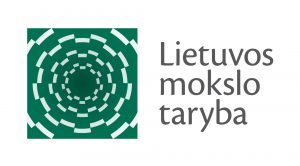„Interlinkages between unemployment rates and the informal economy in Lithuanian regions“, No. P-GEV-20-36

Project No. P-GEV-20-36
Project title: „Interlinkages between unemployment rates and the informal economy in Lithuanian regions“
Project duration: from 2020-03-03 to 2021-09-30.
Project manager: prof. dr. Ligita Gasparėnienė.
Project partneris: Employment Service.
Summary: Over the last decades, the literature on the relationship between the informal economy and unemployment has encouraged an assessment of the nature of this relationship in emerging economies. According to the World Bank classification, Lithuania still belongs to the group of emerging economies. According to the data of the Employment Service in 2019, the number of unemployed people in Lithuania has not decreased for several years in a row and amounts to 143,000 unemployed people (more than 50,000 unemployed people are registered in Lithuania’s regiofromse). In other words, as the economy grows and wages increase, unemployment is not decreasing. Meanwhile, the shadow economy is mainly determined by people’s financial situation and the extent to which they justify shadowing. If a person thinks well of his or her income (in this case unemployment benefits), he or she is 39% less likely to buy goods or services illegally. To date, there are no studies on the extent to which the unemployed (from a consumer and supplier point of view) are likely to engage in the informal economy in the regiofromse, which makes it difficult to identify the causes of unemployment traps.
Result to be achieved: The aim of the project is to develop a model of the interdependence between unemployment and the informal economy in the Lithuanian region by assessing the interdependence of unemployment rates and the informal economy in the context of emerging economies.
The project is carried out within the framework of the Lithuanian Research Council’s (LRC) competitive priority research programme “Welfare Society”.